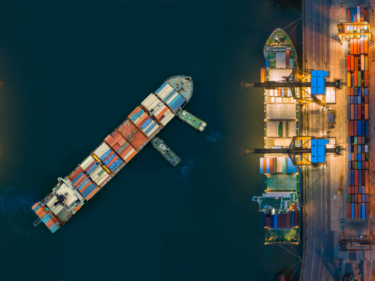Recent Release | 27 Jun 2018
Combatting Illicit Trade

Thought Leadership Team
Oxford Economics

 Illicit trade is a persistent and growing threat, as technology, the global economy and e-commerce open new opportunities for counterfeit products to infiltrate supply chains and provide consumers with illicit products. Many understand the risks—that illicit trade can cause serious public health issues, and that the proceeds from illicit sales fund other criminal activities. Others view some form of illicit trade as the soft underbelly of the global economy— the price to be paid for frictionless trade.
Illicit trade is a persistent and growing threat, as technology, the global economy and e-commerce open new opportunities for counterfeit products to infiltrate supply chains and provide consumers with illicit products. Many understand the risks—that illicit trade can cause serious public health issues, and that the proceeds from illicit sales fund other criminal activities. Others view some form of illicit trade as the soft underbelly of the global economy— the price to be paid for frictionless trade.
The research, carried out by Oxford Economics, seeks to understand this evolving issue—specifically, the attitudes and behaviours of those that influence the demand and the supply for illicit goods, so that illicit trade can be contained. Often, when considering how best to reduce illicit trade, the focus has centred on enforcement actions to curb supply without looking also at how to reduce the demand for illicit products through a better understanding of consumer behaviours.
Click here to read Combatting illicit trade: Consumer Motivations and Stakeholder Perspectives.
Oxford Economics’ team is expert at applying advanced economic tools that provide valuable insights into today’s most pressing business, financial, and policy issues.
To find out more about our capabilities, contact:
Americas
Diantha Redd
+1 (646) 503 3052
Email
Asia Pacific
Peter Suomi
+65 6850 0110
Email
EMEA
Aoife Pearson
+44 (0)203 910 8054
Email
Related Services

Post
The economic impact of abandoning the WTO
Oxford Economics have been commissioned by the International Chamber of Commerce (ICC) to provide an independent assessment of the economic impact of WTO dissolution. This report details our findings and the assumptions underpinning our analysis.
Find Out More
Post
The economic impact of the sports activities of public service media
This study shows how the sports activities of public service media supported €4.5 billion of GDP and 57,000 jobs across 31 European countries in 2022. The report also highlights wider economic benefits of public service media sports coverage, such as the way in which it leverages sponsorship income for sports bodies.
Find Out More
Post
Global Trade Education: The role of private philanthropy
Global trade can amplify economic development and poverty alleviation. Capable leaders are required to put in place enabling conditions for trade, but currently these skills are underprovided in developing countries. For philanthropists, investing in trade leadership talent through graduate-level scholarships is an opportunity to make meaningful contributions that can multiply and sustain global economic development.
Find Out More